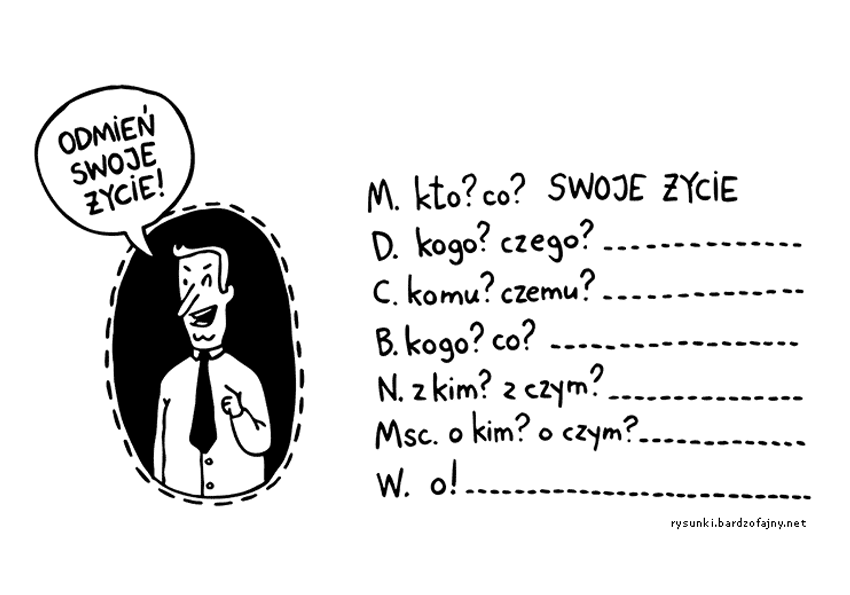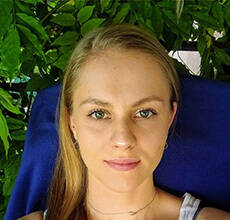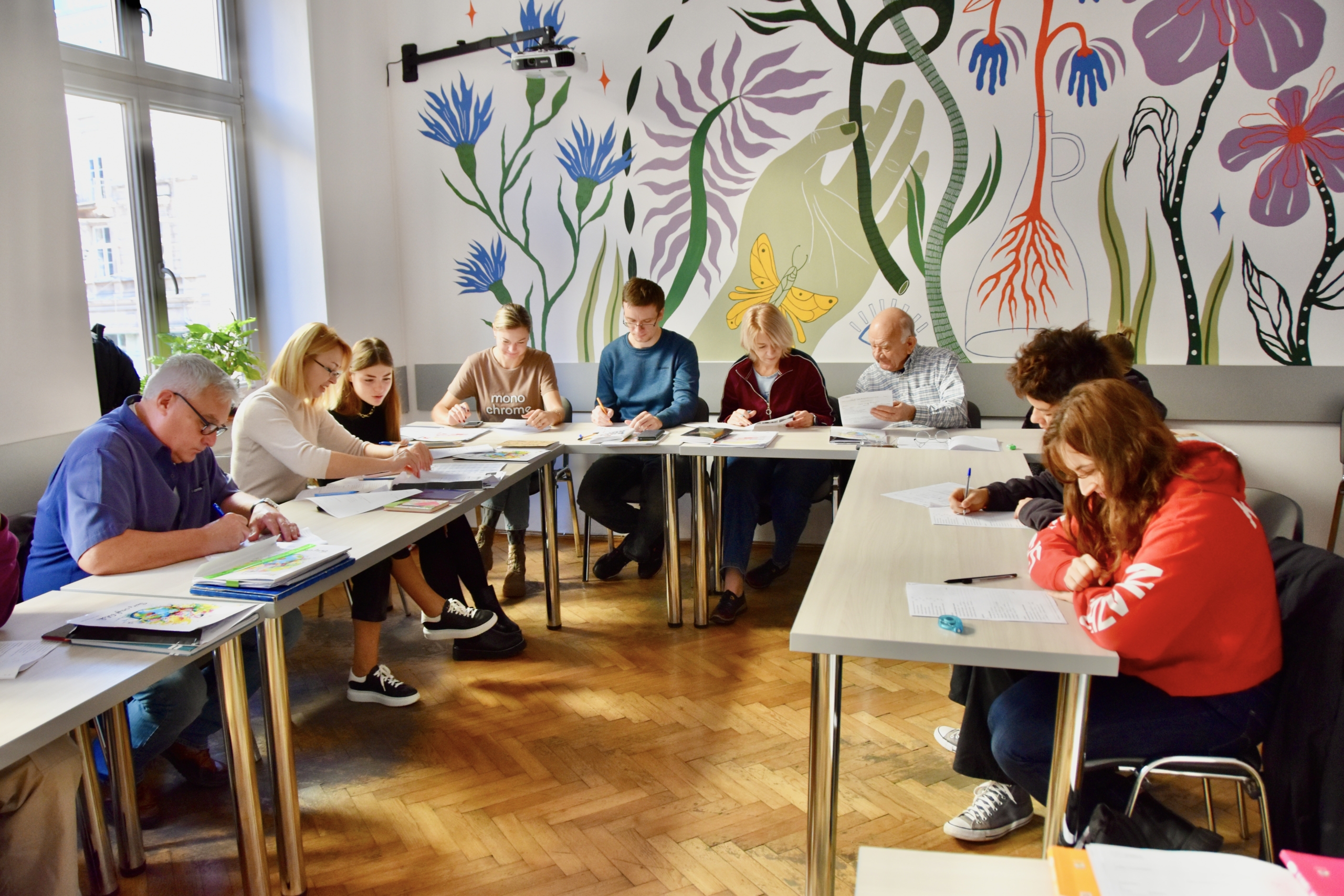Ta strona korzysta z ciasteczek, aby zapewnić Ci najlepszą możliwą obsługę. Informacje o ciasteczkach są przechowywane w przeglądarce i wykonują funkcje takie jak rozpoznawanie Cię po powrocie na naszą stronę internetową i pomaganie naszemu zespołowi w zrozumieniu, które sekcje witryny są dla Ciebie najbardziej interesujące i przydatne.
Cases in Polish -
how to learn them?
19 Sty | 2024
Polish is one of the languages using case variation in its grammar. They can cause considerable trouble for those learning Polish as a foreign language, but don't worry! The devil is not so terrible as he is painted, and with our advice, you will certainly cope with them singing!

Cases – general information
The Polish language contains seven grammatical cases. Not many, right? However, you need to remember that the endings belonging to each case can be several. Cases in Polish conjugate nouns (e.g., house, dog, bread), adjectives (big, green), adjectival participles (speaker, future), some of the numerals (dwoje, troje) and pronouns (mój, twoja). The case variation is called declension. Its great advantage and is that we can afford to have free sentence formation!
What cases are distinguished in Polish?
The different grammatical cases in Polish:
– Mianownik (Latin nominativus) – answers the questions: kto? co? (it is). The basic form of a word is given in dictionaries precisely in the nominative.
– Dopełniacz (Latin genetivus) – answers the questions kogo? czego? (is not). It is used very often in negation (e.g. Wojtek did not break the glass) or in affiliation relations, e.g. zabawka Basi, samochód Tomka.
– Celownik (Latin dativus) – its questions are to komu? czemu? (looking at). It is used relatively rarely and describes mainly giving. It is combined with verbs such as dawać, mówić, sprzedawać, oddawać, pomagać, obiecywać, dziękować or prepositions: dzięki, przeciw, wbrew.
The endings of the verb’s verb for nouns:
– in the masculine genus -owi: teacher or -u: brother, cat,
– in the feminine genus: -i, e.g. hope, and -e, e.g. woman.
– Biernik (Latin: accusativus) – answers the questions kogo? co? (see).
Many verbs require the use of the accusative, but note that we use the complement after the negation:
- Słyszę (co?) śpiew.
- Nie słyszę (czego?) śpiewu.
The preposition by always combines with the accusative.
– Narzędnik (Latin: instrumentalis) – its questions are z kim? z czym?. First of all, it is used to specify a tool (młotkiem, pędzlem, ołówkiem) or a means of transportation (samochodem, samolotem), or to indicate what one is interested in (Interesuję się teatrem) or who one is (Jestem kierowcą/informatykiem/kobietą). The adjective is combined with the prepositions z, pod, nad.
Nouns in the singular number have endings: -em, -a, and in the plural -ami.
– Miejscownik (Latin: locativus) – answers questions o kim? o czym?. It is used to describe a place, so it always requires the use of a preposition. Nouns have an ending in the locative -e – o kocie, or -u – w styczniu. Nouns ending in k, g, ch take the ending u: horn, dragon. In the plural, nouns in all three genera take the ending -ach (exceptions: na Węgrzech, w Niemczech).
– Wołacz (Latin vocativus) – is the only case that does not have a question. It is used in vocalizations, direct phrases. Nowadays it is often replaced by the nominative and instead of: Staszku!, we will hear the call: Staszek!
Statistically, the least frequently used cases are the vocative and the nominative.
Cases in Polish can be a challenge, but understanding their role and practicing them are key to effective use of the Polish language. Learning cases is a gradual process that usually takes several years. It’s easy to get lost in it, so the safest way to learn cases is to study them under the watchful eye of a teacher in a Polish language course. The experience of a qualified teacher will ensure that cases will have no secrets from you!
We wish you a productive learning experience!
Justyna Kotlarczyk

Online Courses

Course Online
Semester Polish Course Online
- 52 lessons - 2 x 90 min weekly
- 2 x90 min evening classes
- All language levels A1 – C2
Courses at School

Course at School
Semester Polish Language Course
- 52 lessons - 2 x 90 min weekly
- Morning and evening classes
- All language levels A1 – C2
Do You Have Questions?

Justyna Kotlarczyk
Varia Polish Language Center



